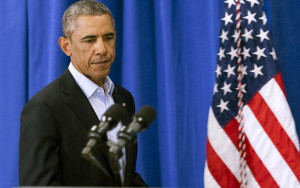Ransom, In Search of the Most Optimal Outcome
The degrees in which the actions of the ISIS (Islamic State in Iraq and Syria) can be tolerated has far exceeded the acceptable limit. In January 31st, ISIS released a video showing the beheading of Japanese journalist Kenji Goto, following the execution of Haruna Yukawa in January. A few days after that, on Tuesday, February 3rd, Royal Jordanian Air Force pilot, Moath al-Kasasbeh, who had been held as an ISIS hostage for three months, was burnt to death in a locked cage. ISIS is displaying high levels of determination to “rule the entire world” by adopting a more hideous method of killing its hostages.

As a growing number of the ISIS hostages are being cruelly executed, there is an unprecedented debate on whether the governments should be paying ransom in exchange with the lives of the hostages. No government has openly announced that it will pay ransom fees under any circumstance for its captivated citizens since doing so would leave its citizens more exposed to the danger of being kidnapped. However, some countries have been paying ransoms through the back door or through the families of the kidnapped individuals. The governments of Western Europe, especially Belgium and France, deny paying ransoms but try their best to rescue the kidnapped citizens. On the other hand, the United States, Britain, and Japan are very strict on a no-ransom, no-negotiation policy. The U.S. is especially unforgiving: the U.S. warned the family of James Foley, the first U.S. citizen ISIS beheaded, that they will be prosecuted if they paid ransom of their own.
The debate over whether the governments need to pay ransom should depend on the role that governments play for their citizens when kidnapped. If the governments have sufficiently warned the individuals about the possible dangers of traveling to certain countries, but the individuals made their trip regardless, should government be responsible for protecting the individuals? A clear-cut example of this is an incident in January 2015, when a male 18-year-old Korean student voluntarily traveled to Turkey to be a member of the ISIS. Although the Korean government is trying to locate the boy in order to convince him to go back to Korea, the boy has yet to be identified. On the other hand, if the individuals had to put themselves in dangerous countries in order to carry out certain governmental tasks, the governments should be responsible for the well-being of those individuals. The governments is in no position to refuse the payment of ransom due to their adherence to a “no-concession” policy. After all, the utmost responsibility of the governments is to protect their citizens.
To a certain extent, the act of paying ransom may not be a significant action for those both demanding and paying ransom because terrorists do not hold individuals captives solely for money but more for political intimidation and manipulation. As an expert said, “[money] does not always appear to be the main motivation.” By taking the hostages and demanding ransom, the terrorists are trying to demonstrate that they are stronger, more intelligent, and, essentially, that they are fighting for a better cause than the opponents. This is apparent especially with ISIS, as they are demanding a huge amount of ransom mostly from Western countries. If the U.S. does pay ransom, the ISIS will portray the U.S. as a weak power who yielded to them. However, even if the U.S. does not pay ransom, ISIS may still not be deterred from kidnapping more hostages. In either case, the ISIS is motivated to openly denounce the U.S. and its allies. Therefore, ransom may not necessarily dictate the relationship between those who demand and those who pay ransoms.
The concern is the tremendous unlikelihood for a ransom-demanding terrorist group to release the hostages without being paid with random, except on a purely humanitarian basis. There is rarely another option to have hostages returned home safely besides paying the required ransom. Therefore, “a strict “no concessions” policy limits options for the safe return of hostages without delivering on any of its promises. It may be time to reevaluate what might work best for the people.

